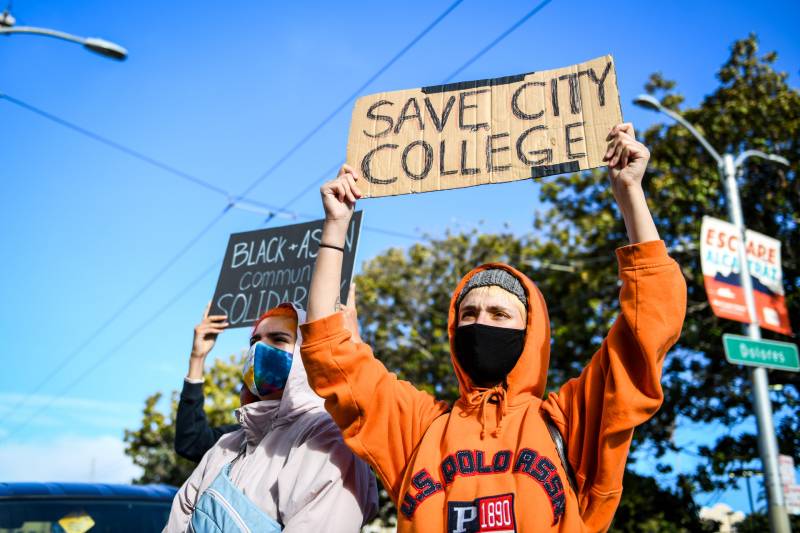"This is a one-year deal. And City College will continue to have a structural budget deficit and funding gap," Wong said. "Immediately after approving this tentative agreement, we must turn our attention to long-term funding."
While state leaders aren't receptive to funding the vision some locally have for CCSF, San Francisco elected officials are working behind the scenes to find new funding to pay for classes that California government won't foot the bill for.
SF Supes Support Stepping in for CCSF
San Francisco Supervisors Gordon Mar and Hillary Ronen view the binary of serving younger students and the broader workforce as a false choice. They're seeking city funding to pay for classes they think buttress the city's economy and its culture.
Mar said the funding will likely come from his previous legislation, the Workforce Education and Recovery Fund.
"I'm hopeful my colleagues and Mayor [London] Breed will support a significant expansion of WERF as an investment in City College and economic opportunity for residents and communities impacted by the pandemic," Mar told KQED in a statement. "I continue to discuss the best way to accomplish this with City College leadership and other City officials and hope to bring a proposal forward in the coming weeks."
The mayor's office said they are in conversations with the college's administration to "better understand the long-term health and needs" of City College.
Ronen framed her support for City College as sorely needed for San Francisco's economic recovery from the pandemic.
"As the city prepares for a long road to recovery ahead, our city government, our local businesses, and our residents alike will rely on City College's workforce training and professional development programs more than ever before," she said in a statement. "It is in the City's own best interest to preserve these programs in order to fill our most urgent workforce needs and provide thousands of marginally employed San Franciscans with reliable pathways to job opportunities and financial stability."
There seems to be broad support at the Board of Supervisors to aid City College. Supervisors Rafael Mandelman, Aaron Peskin, Dean Preston, Connie Chan and Matt Haney all told KQED they support funding CCSF to maintain classes to some degree, though all mentioned a need to suss out either particular funding sources, or to what degree they'd fund CCSF classes.
"We need to get down to brass tacks. What do we need City College to do that the state doesn't? And how much do we need to pay for that?" Mandelman said.
Mandelman said that unlike the state, San Francisco believes City College should be a place for older and returning students, and that maintaining a large number of campuses across San Francisco's many diverse neighborhoods (another frequent target of state officials' desire to slash CCSF resources) may also be a need.
But, Mandelman said, "Somebody's gotta pay for it," and the city needs to "expect more from City College" in terms of managing its resources better.
Haney said it's possible future tax windfalls could help pay for City College classes San Francisco wants to maintain. A property transfer tax earmarked for City College may need to be better put to use to maintain classes as well, he said. "City College has not received most of that money," Haney said. "It just goes into the city general fund."
And Peskin said he feels the state needs to change its tune on its priorities for City College.
